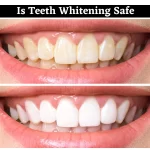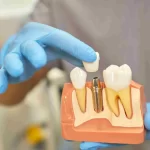Here is a short glossary of the most common dental terms used that you might hear when talking to your dentist or support staff.
- Abscess: An infection of a bone, tooth or soft tissue.
- Apex: A tooth’s tip of the root.
- Attrition: Natural wear and tearing leading to a loss of tooth’s structure
- Biopsy: The process of removing a small piece of tissue for the purpose of micro examination.
- Bruxism: Gnashing or grinding of the teeth, commonly found in patients while asleep.
- Caries: Tooth decay or cavities.
- Carcinogenic: Cancer-causing.
- Cariogenic: Decay-causing
- Geriatric dentist: A general dentist who mainly treats senior citizens.
- Third Molars: Wisdom teeth.
- Occlusal surface: The tooth’s chewing surface
- Calculus: Calcium-like, hard deposits that form on teeth as a result of improper plaque control, stained often brown or yellow. It is also called as tartar
- Cap: Commonly used term for a dental crown.
- Cuspids: The third tooth from the mouth’s centre to the back that have one pointed or rounded edge used for biting. They are also known as canines.
- Demineralization: A white area on the tooth’s surface which is the result of mineral loss from the tooth’s enamel, just beneath the surface in a carious lesion.
- Dentin: Tooth structure’s inner layer, immediately below the enamel’s surface.
- Extraction: a tooth’s removal
- Nerve: A tissue that transmits temperature, sensation, and information to the brain.
- Dental Implant: A dental implant is a cylinder made of titanium that is surgically placed in the upper or lower haw’s bone to provide cornerstone for a dental appliance or restoration. Whether you have lost one or more teeth as a result of an accident or decay, dental implants can rescue your smile with natural looking replacements.
- Diastema: A space between the teeth.
- Eruption: The protruding of teeth through the gums.
- Edentulous: Loss of most or all natural teeth
These are some terms you should keep in mind to make talking to your dentist easier and more understandable.

















